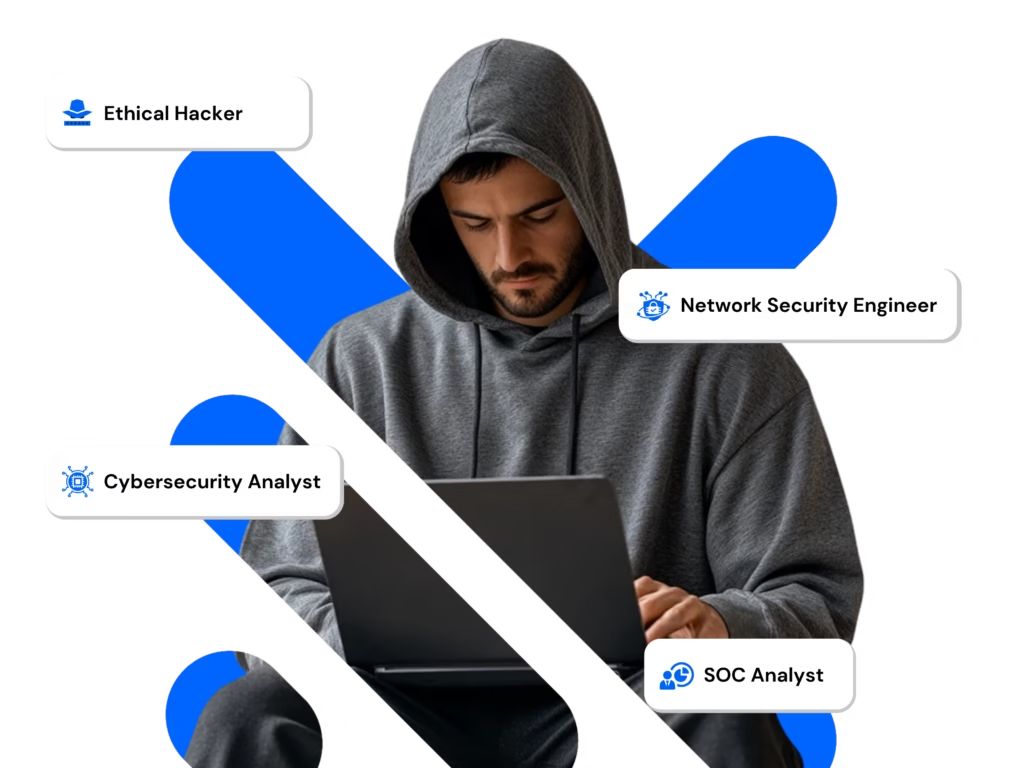
As data breaches become more frequent and sophisticated, understanding the legal frameworks governing data security is crucial for both businesses and individuals. These laws and regulations are designed to protect sensitive information and ensure that organizations are held accountable for any lapses in security. Navigating this complex legal landscape helps businesses mitigate risks, avoid substantial penalties, and maintain trust with their customers.
This comprehensive guide explores the top data breach laws and regulations, offering detailed insights into how these legal requirements safeguard personal and organizational data. We will examine the responsibilities imposed on organizations, the specific notification requirements for breaches, and the potential penalties for non-compliance, providing a thorough understanding of how to navigate and comply with these essential regulations.
Table of Contents
Key Data Breach Laws and Regulations You Need to Know

General Data Protection Regulation GDPR
The General Data Protection Regulation GDPR, enacted by the European Union, is one of the most stringent data protection laws globally. It mandates organizations to implement robust data security measures and grants individuals extensive rights over their personal data, such as access, rectification, and deletion. GDPR applies to both EU-based organizations and those outside the EU that handle the personal data of EU citizens. Its emphasis on transparency and accountability has set a high global standard for data privacy, compelling organizations to prioritize data protection and imposing significant penalties for non-compliance.
Furthermore, GDPR requires organizations to appoint a Data Protection Officer (DPO) in certain circumstances, ensuring dedicated oversight of data protection practices. It also introduces the concept of “privacy by design,” urging businesses to incorporate data protection measures from the outset of their processes and systems. The regulation has prompted a widespread reevaluation of data handling practices across industries, driving innovations in privacy-enhancing technologies and fostering a culture of accountability. As data breaches continue to pose significant risks, GDPR serves as a crucial framework for safeguarding personal information, ultimately aiming to empower individuals and enhance trust in the digital economy.
Key Points
| Data Breach Notification | Organizations must notify the relevant authorities within 72 hours of discovering a breach. |
| Fines | Non-compliance can result in fines up to €20 million or 4% of global turnover, whichever is higher. |
| Scope | Applies to all organizations processing data of EU citizens, regardless of location |
California Consumer Privacy Act CCPA
The California Consumer Privacy Act CCPA is a landmark regulation that significantly enhances data privacy for California residents. It grants individuals extensive rights over their personal information, including the ability to access, delete, and opt out of the sale of their data. The CCPA requires businesses to be transparent about their data collection, use, and sharing practices.
By holding companies accountable for their data handling, it aims to strengthen consumer privacy protections. The law applies to any organization that processes personal data of California residents, setting a high standard for data privacy and influencing broader regulatory practices.
Key Points
| Data Breach Notification | Businesses must inform affected individuals about data breaches in a timely manner. |
| Fines | Penalties can reach up to $7,500 per violation. |
| Scope | Applies to for-profit businesses that collect personal information of California residents and meet specific thresholds |
Health Insurance Portability and Accountability Act HIPAA
The Health Insurance Portability and Accountability Act HIPAA is a crucial U.S. regulation aimed at safeguarding sensitive patient health information. Enforced across the healthcare sector, HIPAA applies to healthcare providers, health plans, and healthcare clearinghouses. The regulation establishes national standards for the protection of health information, ensuring that personal medical data is securely managed and confidential.
HIPAA mandates stringent measures for handling, storing, and transmitting patient information to prevent unauthorized access and breaches. It also outlines specific rights for patients, including the ability to access their health records and request corrections. By enforcing these standards, HIPAA plays a vital role in maintaining the privacy and security of patient data in the healthcare industry.
Key Points
| Data Breach Notification | Covered entities must notify affected individuals, the Department of Health and Human Services (HHS), and sometimes the media. |
| Fines | Penalties can range from $100 to $50,000 per violation, with a maximum annual penalty of $1.5 million. |
| Scope | Applies to entities handling protected health information (PHI) in the US |
Payment Card Industry Data Security Standard PCI DSS

The Payment Card Industry Data Security Standard PCI DSS provides a framework of security guidelines aimed at protecting credit card information and ensuring secure transactions. Although not legally mandated, compliance with PCI DSS is vital for businesses that process, store, or transmit credit card data. The standards cover key aspects such as data encryption, secure access controls, and regular security assessments.
Following these guidelines helps prevent data breaches and fraud, safeguarding both the business and its customers. Failure to comply with PCI DSS can result in significant financial penalties and higher transaction fees, making adherence essential for maintaining payment security and customer trust.
Key Points
| Data Breach Notification | While PCI DSS does not mandate breach notification, compliance with local laws is required. |
| Fines | Non-compliance can result in fines and increased transaction fees from payment card networks. |
| Scope | Applies to all entities that store, process, or transmit cardholder information |
Federal Information Security Management Act FISMA
The Federal Information Security Management Act FISMA is a pivotal U.S. federal law that mandates federal agencies and their contractors to implement rigorous security measures for protecting information systems. Enforced to enhance the security and integrity of federal operations, FISMA emphasizes the need for robust information security practices across all levels of government. It requires these entities to develop, document, and regularly review security plans, conduct risk assessments, and ensure continuous monitoring of their information systems.
FISMA also mandates that agencies report on their security posture to the Office of Management and Budget (OMB) and Congress, ensuring transparency and accountability. By setting these standards, FISMA aims to fortify the security of sensitive government data and systems against potential threats and vulnerabilities.
Key Points
| Data Breach Notification | Agencies must report security incidents and breaches to the Department of Homeland Security (DHS). |
| Fines | FISMA violations can result in penalties and loss of federal funding. |
| Scope | Applies to federal agencies and their contractors handling sensitive government information |
Personal Data Protection Act PDPA
The Personal Data Protection Act PDPA is a significant regulation enforced in various countries, including Singapore that governs the collection, use, and disclosure of personal data. Designed to protect individuals’ privacy, the PDPA establishes strict guidelines for how organizations must handle personal information, ensuring it is managed responsibly and transparently.
The act requires entities to obtain consent before collecting data, to use data only for the purposes it was collected, and to implement measures to secure the data against unauthorized access. Additionally, it provides individuals with rights to access, correct, and requests the deletion of their personal data. By enforcing these regulations, the PDPA aims to enhance data privacy and security across multiple jurisdictions.
Key Points
| Data Breach Notification | Organizations must notify the Personal Data Protection Commission PDPC and affected individuals. |
| Fines | Penalties can reach up to SGD 1 million. |
| Scope | Applies to organizations handling personal data in jurisdictions where PDPA is enforced. |
Explore More On: IoT Security Tools to Protect Your Devices
FAQs:-
What is the GDPR and how does it impact businesses?
The General Data Protection Regulation (GDPR) is a comprehensive data protection law that governs the handling of personal data of individuals within the European Union (EU). Businesses that collect or process EU citizens’ data are required to comply with GDPR’s stringent regulations regarding data security, consent, and individual rights.
What are the key requirements of the California Consumer Privacy Act (CCPA)?
The CCPA grants California residents certain rights over their personal data, including the right to know what information is being collected and shared, the right to opt-out of the sale of their data, and the right to request deletion of their data. Businesses subject to CCPA must also provide transparent privacy policies and implement security measures to protect consumer information.
How does HIPAA impact the healthcare industry in terms of data protection?
HIPAA is a critical regulation that sets standards for protecting patients’ medical records and other health information. Healthcare providers, insurers, and related entities must comply with HIPAA’s privacy and security rules to safeguard sensitive health data and ensure patient confidentiality.
What are the penalties for non-compliance with data breach laws and regulations?
Penalties for non-compliance with data breach laws can vary depending on the specific regulation and the severity of the violation. Businesses that fail to meet data protection requirements may face fines, legal consequences, reputational damage, and loss of customer trust. Prioritizing compliance and investing in robust data security measures can help mitigate these risks.





